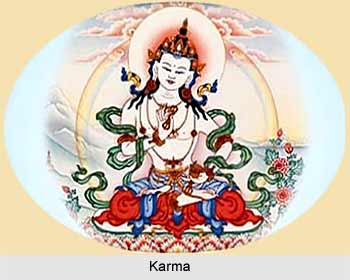 In the Indian social system, company is said to play a very important role in making the character of a person. For this, the words `good company` and `bad company` were used in olden times. But today, the terms `atmosphere` and `environment` are used for this. Based on this, the human life is interpreted now. The other base of interpreting life is heredity.
In the Indian social system, company is said to play a very important role in making the character of a person. For this, the words `good company` and `bad company` were used in olden times. But today, the terms `atmosphere` and `environment` are used for this. Based on this, the human life is interpreted now. The other base of interpreting life is heredity.
The social life in our country has many questions of which there is no answer in psychology. According to physiology, the solution can be found in karmic theory. But this is again problematic as people having faith in religion would believe in karmic theory and scientists believe in psychology and heredity. Scientists can present their beliefs with great confidence as they have the ability of convincing the people totally. But those having faith in spirituality are a bit slow in this regard. Therefore, any important principle like the science of karma is beyond people`s reach and unacceptable to them. Psychology cannot be made believe compared to the depth of the science of karma interpreted in Jaina philosophy. The science of karma has not been presented yet as it should have been.
The entire social life can be interpreted through the science of karma. The difference in height among various persons is described to be due to the secretion of the glands. The same is applicable in case of the voice of someone being very sweet and of the other very harsh. Scientists are regarded to be the persons whose words are commands, no one can challenge them. They are having so much influence, impression and command. Again, there are people whose words are not listened and they were not bothered. There is a proper solution to all these queries in the Jaina philosophy of karma. According to this philosophy, a particular karma is responsible for all these differences.
As per the karmic theory, this karma has been compared to a painter. A painter paints different kinds of pictures, creates innumerable forms. In the same way body making karma presents innumerable forms of personality. The Jaina philosophy of karma has a solution of every problem. It could be the interpretation of body, senses, mind, consciousness or the different emotions that come into mind from time to time. All the activities of life are related with Karma. The karma affects so much anyone`s social and personal life but still very less of it is known to the world. People indulge themselves in activities but never think why they are bonding themselves with karma. It is like a spider that gets caught in his own web. The man makes the web of karma, without knowing their mysteries. If a man tries to trap and harm someone, the other fellow gets annoyed. But unknowingly, he prepares a web of karma with no clue of their consequences. That is why a man never finds a solution to his problems.
The Jainacharyas have revealed the mysteries of life and tried to solve the complexities of life in a very significant way.
The great theory of Jaina philosophy can get wide recognition if the common people tried to understand this theory and give it a scientific form. The social life can be made better by understanding and using this karma theory.












